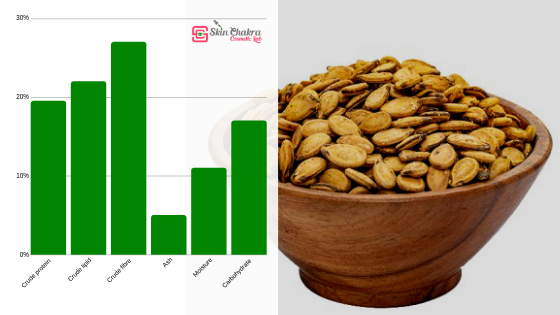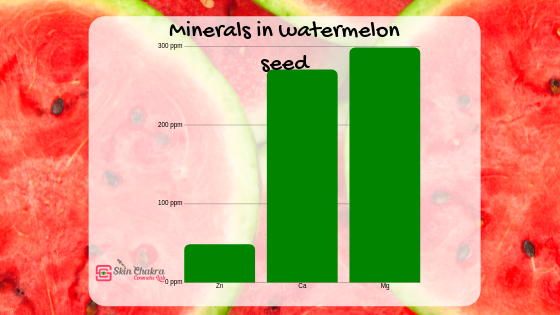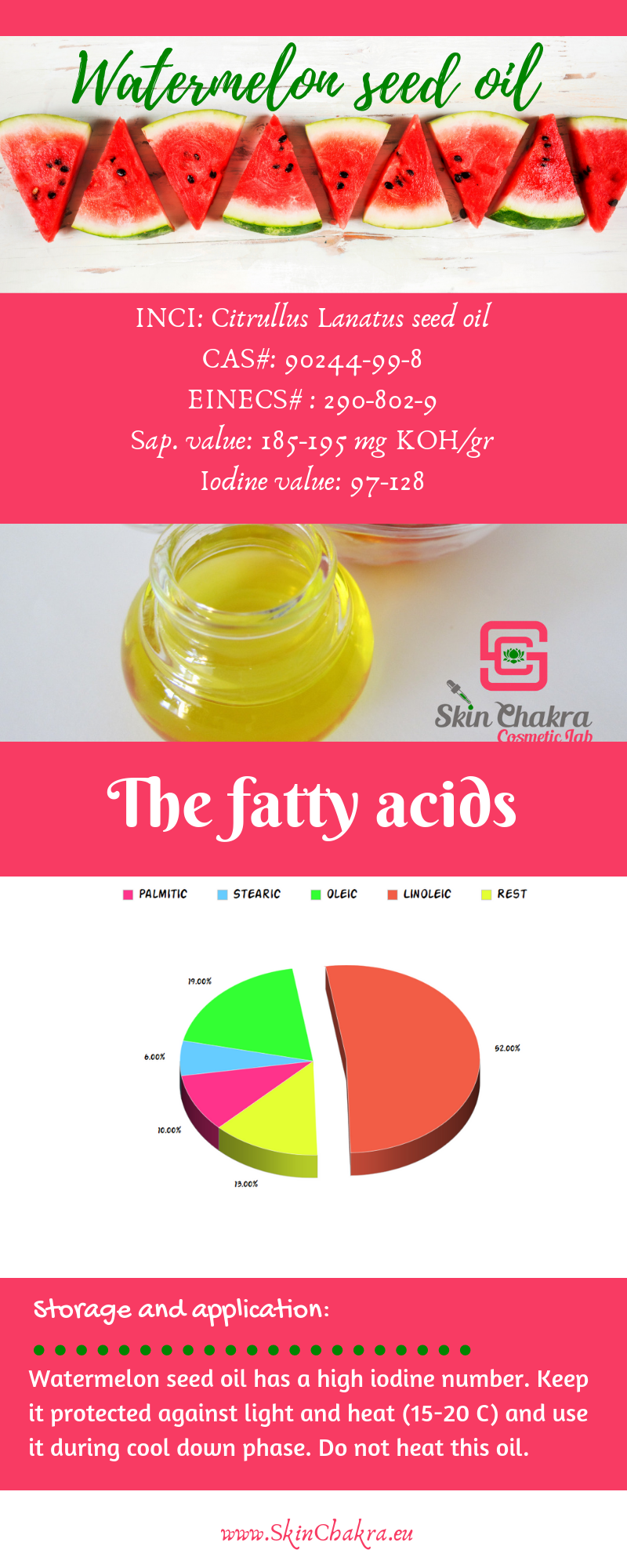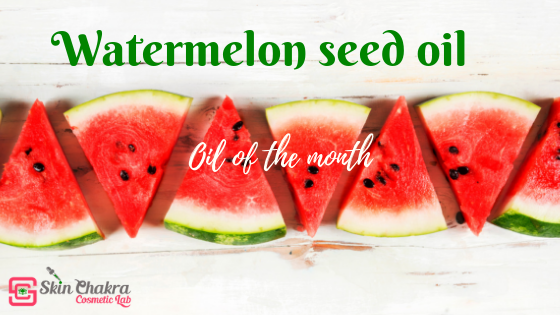Watermelon seed oil is our oil of the month in September 2019. This means, through the whole month of September we have a special discount for this oil.
Read about our previous oils of the month if you have missed the blog posts:
Plum kernel oil
Elderberry oil
Arnica flower oil
Passionfruit seed oil
Brazil nut oil
Avocado oil
Sacha-Inchi oil
Cucumber oil
Moringa oil
Rosehip oil
The plant
Watermelon (Citrullus lanatus) is a member of the pumpkin (Cucurbitaceae) family. Originally it comes from the Kalahari desert in Namibia. The plant is frost intolerant and is cultivated in warm climate for its juicy sweet fruits.
The fruit contains more than 90% water and is henced considered a weight loss fruit despite its sweet taste.
The seeds are usually discarded although in some cultures they are considered as a healthy snack. In persian culture, watermelon seeds are salted and roasted and make a favourite home made snack. (although most people purchase them and do not make them at home anymore). Watermelon seeds are associated with tea, chatting, gossip and shisha.
The seeds are indeed very nutrient and contain a high fibre and protein content (apart from the fat content).

In the last few years, the seeds have become a source for bio fuel because of their high fat content.

The oil
The oil has a yellow colour and a nutty (not fruity) scent. It has a dry and pleasant skin feel. The stearic and palmitic acid content are just enough to impart barrier protection but no greasiness. The major component is linoleic acid.
 Further reading:
Further reading:
Fruit Oils: Chemistry and Functionality
Wani, Ali Abas, et al. "Characterisation and functional properties of watermelon (Citrullus lanatus) seed proteins." Journal of the Science of Food and Agriculture 91.1 (2011): 113-121.
Adunola, A. T., et al. "Antibacterial activity of watermelon (Citrullus lanatus) seed against selected microorganisms." African Journal of Biotechnology 14.14 (2015): 1224-1229.
BeHappy and have fun





